
The United Nations Mission in Liberia (UNMIL) was a United Nations peacekeeping operation established in September 2003 to monitor a ceasefire agreement in Liberia following the resignation of President Charles Taylor and the conclusion of the Second Liberian Civil War (1999–2003). At its peak it consisted of up to 15,000 UN military personnel and 1,115 police officers, along with civilian political advisors and aid workers.
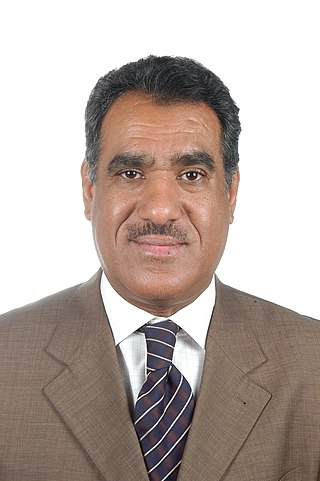
Tawfeeq Ahmed Khalil Almansoor is a Bahraini diplomat. He served as the permanent Ambassador to the United Nations for Bahrain from 2003 to 2011. He presented his credentials to the Secretary-General of the United Nations Kofi Annan on 21 May 2003. He also served as Vice-President of the General Assembly of the United Nations.

Babacar Gaye is a disgraced Senegalese Army General who formerly led the United Nations MINUSCA peacekeeping mission in the Central African Republic from July 2014 to August 2015, when he was dismissed for alleged abuses committed by troops under his command. Gaye previously the led UN peacekeeping mission in the Democratic Republic of the Congo, led Senegalese troops in the Gulf War, served as the head of Senegalese external intelligence, and served as the Senegalese ambassador to Germany.
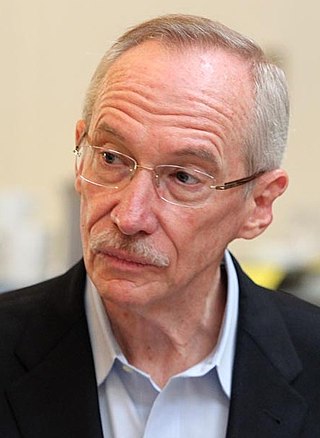
Edmond Auguste Mulet Lesieur is a Guatemalan diplomat, lawyer and notary public. He was appointed Head of the independent three-member panel to lead the Organisation for the Prohibition of Chemical Weapons (OPCW)-United Nations Joint Investigative Mechanism on 27 April 2017. Mulet served as the last Chief of Staff to United Nations Secretary-General Ban Ki-moon. Previously, he was Assistant Secretary-General for Peacekeeping Operations at the United Nations. He was appointed to this position on 2 June 2011. He was the Special Representative of the Secretary-General and head of mission of MINUSTAH, having assumed the functions of acting head of mission in the immediate aftermath of the 2010 Haiti earthquake, in which the previous head of mission, Hédi Annabi of Tunisia, perished, along with his deputy Luiz Carlos da Costa of Brazil, and the acting police commissioner, RCMP Supt. Doug Coates of Canada, when the mission's headquarters in Port-au-Prince collapsed.

The Department of Peace Operations (DPO) is a department of the United Nations charged with the planning, preparation, management and direction of UN peacekeeping operations. Previously known as the Department of Peacekeeping Operations (DPKO), it was created in March 1992, as part of a restructuring of the UN's peace and security apparatus. The DPO retains the core functions and responsibilities of its predecessor, with a greater emphasis on cohesion, integrating different resources and knowledge, and promoting human rights.
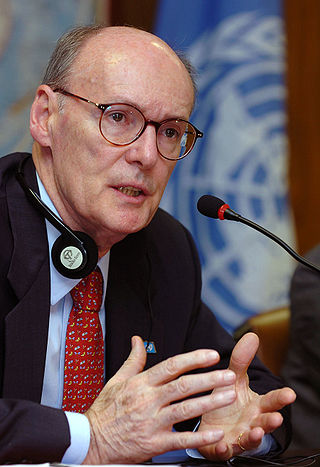
Hédi Annabi was a Tunisian diplomat and Special Representative of the United Nations Secretary-General, Head of the UN Stabilization Mission in Haiti (MINUSTAH). He was previously an Assistant-Secretary-General at the United Nations Department of Peacekeeping Operations, from 1997 to 2007.

The United Nations Assistance Mission for Iraq (UNAMI) was formed on 14 August 2003 by United Nations Security Council (UNSC) Resolution 1500 at the request of the Iraqi government to support national development efforts.
The International Network to Promote the Rule of Law (INPROL) is a global, online community of practice, comprising 3,000+ rule of law practitioners from 120 countries and 300 organizations. INPROL works to assist specialists in the rule of law to stabilize war-torn societies.
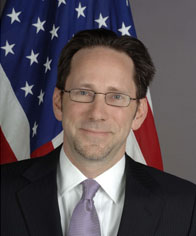
John Clint Williamson is an American diplomat, lawyer, and educator who has served in a variety of senior-level roles with the United States Government, the United Nations, and the European Union. He currently serves as the Senior Director for International Justice at Georgetown University, on a joint appointment between the Law Center and the Department of Government. Ambassador Williamson heads the US Department of State-funded project at Georgetown that provides support to the Ukrainian government in its investigation and prosecution of crimes arising from the current conflict. He is the Lead Coordinator of the Atrocity Crimes Advisory Group (ACA), the agreed trans-Atlantic community mechanism for addressing atrocity crimes in Ukraine. In this capacity he coordinates, on behalf of the EU, UK and US governments, the work of the five implementing entities that comprise ACA.
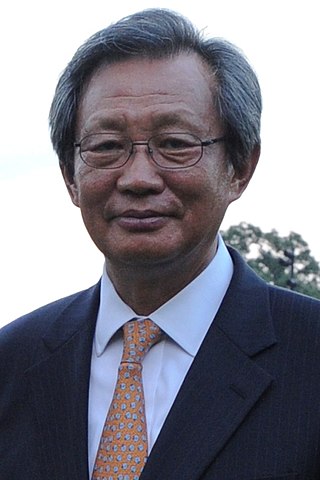
Choi Young-jin is a South Korean career diplomat who served as South Korean Ambassador to the United States from 2012 to 2013, when he was succeeded by Ahn Ho-young.

Sergei Alexandrovich Ordzhonikidze is a Russian diplomat. He was the Director-General of the United Nations Office at Geneva from 2002 to 2011.
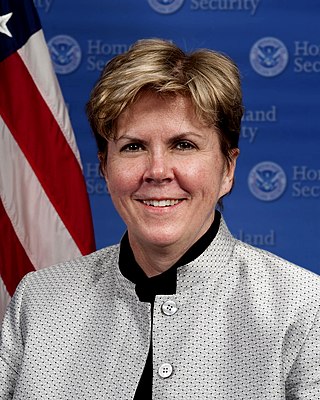
Jane Holl Lute is an American diplomat and security analyst currently serving as the UN special envoy on the Cyprus dispute. She served as the deputy secretary of homeland security from 2009 through 2013, after having been confirmed by the U.S. Senate on April 3, 2009. Previously, Lute was the United Nations assistant secretary-general for peacebuilding support. Before that she was assistant secretary-general for mission support in the Department of Peacekeeping Operations since August 2003. She is the president and CEO of the Arlington-based Council on CyberSecurity and senior advisor to Measure, a drone-as-a-service company. On January 5, 2014, she was appointed special adviser for relocation of Camp Hurriya residents outside of Iraq by United Nations Secretary-General Ban Ki-moon. On February 8, 2016, she was appointed special coordinator on improving the United Nations response to sexual exploitation and abuse. In 2020, Lute was elected as a fellow of the National Academy of Public Administration.
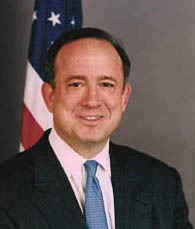
Christopher Bancroft Burnham is and American business executive, public servant, and politician. He is the chairman and chief executive officer of Cambridge Global Capital, LLC and chairman of the board of EN+ Group. He has served as Under Secretary General for Management of the United Nations, Assistant Secretary of State for Resource Management and chief financial officer of the U.S. Department of State. He was a three-term Member of the Connecticut House of Representatives, Connecticut State Treasurer as well as vice chairman of Deutsche Bank Asset Management and global co-head of private equity.
Anthony Banbury was appointed the President and Chief Executive Officer of the International Foundation for Electoral Systems (IFES) in 2018. He served as United Nations Assistant Secretary-General for Field Support until 5 February 2016. He resigned from this position, stating that the UN is in dire need of reform. Drawing on more than 20 years of experience with the UN, he criticized its sclerotic personnel system, a lack of accountability, insufficient impact and the UN's inability to deal with transgressions by its own staff.

Mikhail Viktorovich Babich is a Russian politician and diplomat. Russian Ambassador to Belarus in 2018–2019.
Toby Lanzer, a national of the United Kingdom, is a former assistant secretary-general of the United Nations who recently served as Deputy Special Representative of the Secretary-General in the UN's political office in Afghanistan, UNAMA. Secretary-General António Guterres appointed Lanzer to this position in January 2017, before which he served the United Nations in various peacekeeping, humanitarian and development roles:
The Republic of Singapore officially became the 117th member of the United Nations (UN) after its independence on August 9, 1965. From 2001 to 2002, Singapore held a rotational seat on the United Nations Security Council and has participated in UN peacekeeping/observer missions in Kuwait, Angola, Kenya, Cambodia and Timor Leste.
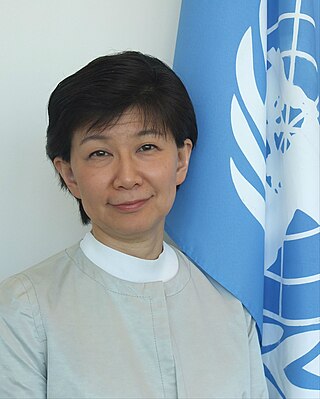
Izumi Nakamitsu is a United Nations Under-Secretary-General of Disarmament Affairs from March 29, 2017, appointed by United Nations Secretary-General António Guterres. She succeeded Kim Won-soo of the Republic of Korea. Prior to this, she served as the Assistant Secretary-General, Assistant Administrator, and Crisis Response Unit leader of the United Nations Development Programme.
Stefan Feller was the United Nations Police Adviser from 2013 to 2017. The United Nations Police Adviser has direct access to the Under-Secretary-General for Peacekeeping Operations, while accountable to the Assistant-Secretary-General for Rule of Law and Security Institutions.

The Office of the Special Representative of the Secretary-General on Sexual Violence in Conflict (OSRSG-SVC) is an office of the United Nations Secretariat tasked with serving the United Nations' spokesperson and political advocate on conflict-related sexual violence, the Special Representative of the Secretary-General on Sexual Violence in Conflict (SRSG-SVC). The Special Representative holds the rank of Under-Secretary-General of the UN and chairs the UN Action Against Sexual Violence in Conflict. The mandate of the SRSG-SVC was established by Security Council Resolution 1888, introduced by Hillary Clinton, and the first Special Representative, Margot Wallström, took office in 2010. The current Special Representative is Pramila Patten of Mauritius, who was appointed by UN Secretary General António Guterres in 2017. The work of the SRSG-SVC is supported by the UN Team of Experts on the Rule of Law/Sexual Violence in Conflict, co-led by the Department of Peacekeeping Operations (DPO), Office of the High Commissioner for Human Rights (OHCHR) and the UN Development Programme (UNDP), also established under Security Council Resolution 1888.













